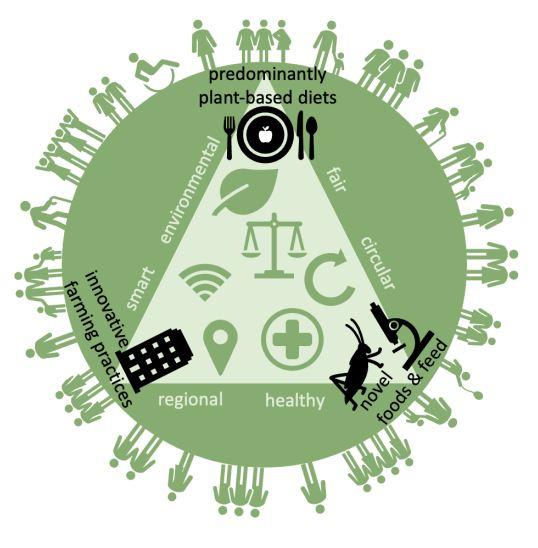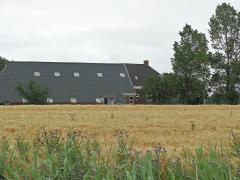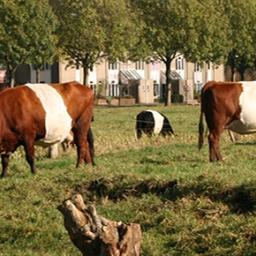Appetite for Change
In the new report “Appetite for Change”, scientists provide a recipe to halve nitrogen pollution from food production in Europe. This pollution is caused by poor use of nitrogen, particularly in livestock farming, which has major impacts on biodiversity, human health, and climate. The essence of the recipe is balanced changes to farm and food chain management, as well as changes to diets.
Excessive and inefficient use of nitrogen fertilizer
This report for the United Nations has put forward solutions to halve nitrogen pollution from agriculture and the food system in Europe, including reducing meat and dairy consumption, fertiliser use, and food waste. Nitrogen, which is vital for plant growth, is present in animal excreta and synthetic fertilisers that are applied to land to boost crop production. But excessive and inefficient use of this nutrient means up to 80% of it leaks into the environment, mostly in various polluting forms of nitrogen: ammonia and nitrogen oxides, which are harmful air pollutants; nitrous oxide, a potent greenhouse gas; and nitrate, which affects water quality.

‘Ingredients’ for recipe to halve nitrogen pollution
'Ingredients’ for the recipe to halve these overall losses include:
- Halving average European meat and dairy consumption, replaced by more plant-based diets, which would cut pollution and improve human health;
- More efficient fertiliser application and storage of manure;
- Cutting food waste by retailers and consumers, and hence reducing the amount that needs to be produced;
- Better wastewater treatment to capture nitrogen from sewage, which would reduce emissions and enable recycled nutrients to be used on fields;
- Help the shift towards more balanced diets by providing financial incentives for foods that have a low impact on the environment and adopting public sector catering contracts that offer these sustainable food choices, for example;
- A coherent combination of policies addressing food production and consumption to better support a transition towards sustainable systems;
- Farmers, industry, government, and consumers need to be mobilised and agree to work together to reduce nitrogen losses throughout the food system, for example through setting up governance platforms at national, regional, and local levels.
PBL contribution
PBL contributed mainly to Chapters 1 and 10 of the report, which content was previously published in Global Food Security.
Authors
Specifications
- Publication title
- Appetite for Change
- Publication subtitle
- Food system options for nitrogen, environment & health
- Publication date
- 19 December 2023
- Publication type
- Report
- Page count
- 141
- Publication language
- English
- Magazine
- UK Centre for Ecology and Hydrology, Edinburgh, UK INMS Report 2023/0
- ISBN
- 978-1-906698-83-6
- Product number
- 5106




